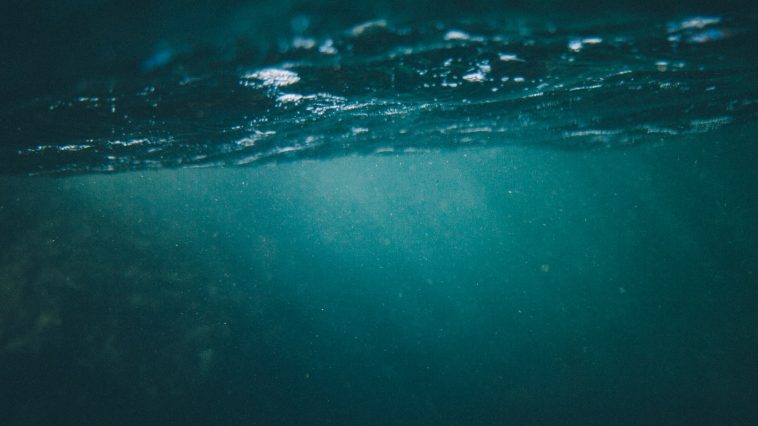Have you ever dreamed of a career that involves both the mysterious depths of the ocean and the challenge of welding? If so, becoming an underwater welder in Michigan may be right for you! Underwater welders get paid to explore life below sea level while also working with their hands. But what is the average salary for this unique job? Let’s take a deeper look into underwater welding salaries in Michigan.
Page Contents
Overview of Underwater Welding
Underwater welding is a unique and dangerous profession. It requires an individual to work in extreme conditions, often at great depths, for long periods of time. The job consists of using specialized equipment and techniques in order to join two pieces of metal together under water or below the surface of the water.
In order to be successful in this field, welders need a combination of technical knowledge and physical strength. They must have strong swimming skills as well as basic safety training related to working in hazardous environments. This includes knowing how to use specialized tools such as torches and electrodes while submerged underwater. Additionally, they must be able to operate within tight tolerances while focusing on minute details that could influence the quality of their welds.
The rewards are high given the risks involved with underwater welding; however, pay is determined by experience level, geographical location, project size/scope complexity along with many other variables like hours worked per day and type (hot or cold) of welding being performed at any given time . To become certified one needs specific qualifications depending upon what country you live in but all include knowledge about local regulations for deep sea diving operations – which can vary greatly from place-to-place around the world – so it’s important for anyone interested in becoming an underwater welder understands these requirements before taking on any projects!
To get started a welder will typically need some sort certification from either:
• American Bureau Of Shipping (ABS)
• International Welding Certification Institute (IWCI)
• Divers Institute Of Technology (DIT)
These certifications usually require completing classes focused on topics such as physics & mathematics fundamentals related specifically towards welding theory & practice along with dive physiology/safety protocols needed when performing tasks down below sea level! Once someone has attained their certificate then they’ll be ready go out into real world scenarios where they’ll apply those same principles learned during classwork sessions – this way they can start making money doing something few people ever get chance do professionally!
Michigan’s Underwater Welding Industry
Michigan is well known for its vibrant and diverse economy, but few people are aware of the growing industry of underwater welding. This type of welders have a unique set of skills that makes them valuable in many different industries. From building bridges to repairing pipelines, Michigan’s underwater welding professionals provide essential services for a variety of projects across the state.
Underwater welding has been used since World War II and is still popular today due to its reliability in providing secure connections between two pieces of metal under water or in other wet conditions. The process involves using specialized tools and techniques to perform precision welds while being submerged underwater. It requires high levels of skill and experience as well as an understanding of the environment surrounding the area where work is taking place.
These skilled workers must be highly trained and certified by organizations like American Welding Society (AWS) before they can begin working with clients on their projects. Companies that specialize in this type of work are often sought after due to their expertise and safety standards which exceed those required by standard operating procedures on land-based job sites. Some common applications for Michigan’s underwater welders include bridge repairs, pipeline repairs, harbor dredging operations, lake bottom restorations, marine salvage operations, shipbuilding maintenance & repair works among other related tasks requiring deep technical knowledge & expertise from these professionals.
The demand for qualified underwater welders continues to rise throughout Michigan due to an increasing number infrastructure projects that require reliable structural integrity at depths beyond what traditional welding can provide safely and efficiently without compromising quality or safety regulations set forth by agencies like OSHA (Occupational Safety & Health Administration). As such some employers prefer hiring individuals who have multiple certifications from AWS making them even more attractive candidates when it comes time applying for jobs within this specialized field or when bidding on contracts involving large scale construction/repair/maintenance works involving bodies waters around Michigan lakes & rivers etc…
Underwater Welders Salary in Michigan
Underwater welding is a highly specialized skill that requires extensive training and certification. As such, the salary for underwater welders in Michigan can be quite rewarding. With an average annual salary of $77,961, those who practice this unique craft are truly compensated for their expertise.
Those interested in pursuing a career as an underwater welder have many opportunities in Michigan to do so. From the Great Lakes to inland lakes, rivers and streams throughout the state – there is no shortage of potential work sites available for skilled professionals. Not only are these locations plentiful but they also offer up diverse challenges that allow welders to hone their skillset while earning top dollar at the same time.
The job of an underwater welder is not without its dangers however; due to working with electricity and hazardous materials under water, it’s imperative that all safety protocols are followed closely when on assignment. Despite this risk factor though, it still remains one of the most lucrative careers in engineering today – offering competitive wages and benefits packages which often include additional hazard pay bonuses depending on location or circumstance.
Qualifications for an Underwater Welder in Michigan
Underwater welding is a specialized and demanding job that requires an in-depth knowledge of welding, engineering, and diving. It takes years of experience and dedication to become qualified as an underwater welder in Michigan.
To get started on the path to becoming certified as an underwater welder in Michigan, individuals need to have a high school diploma or GED equivalent plus at least two years of postsecondary education in Welding Technology or Marine Science. Along with these qualifications come extensive safety training courses such as First Aid/CPR Certification, Oxygen Administration Certifications, and Hazardous Materials Handling Training. Also required are certification courses from the American Welding Society (AWS), which include Basic Underwater Cutting & Welding, Advanced Underwater Cutting & Welding Procedures (including SMAW – Shielded Metal Arc Welding), Gas Tungsten Arc Welding (GTAW) , Plasma Arc Cutting (PAC) , Flux Core Arc Welder (FCAW). Although it’s not mandatory for all positions related to underwater welding, some employers may require additional certifications like NAUI Scuba Diver or Dive Master Certification.
The most important quality for successful underwater welders is confidence; they must be able to work independently while under pressure due to extreme environmental conditions while adhering strictly to safety procedures. Working hours will vary depending on the project but can often involve long dives requiring several days away from home. Above all else, potential candidates should be passionate about their work and willing to go above and beyond what’s expected – qualities that will lead them towards success in this field!
Job Responsibilities and Duties of an Underwater Welder in Michigan
As an underwater welder in Michigan, no two days are the same. Working in a challenging and ever-changing landscape, this job offers a unique set of responsibilities and duties to fulfill. Most notably, an underwater welder is tasked with welding components that are submerged beneath the surface of the water. This means they must be comfortable working in both shallow and deep waters for extended periods of time while wearing scuba gear or other specialized dive equipment.
On any given day, an underwater welder may also take on tasks such as welding pipelines connected to offshore platforms; performing repairs on ships’ hulls; constructing aquaculture structures; or building bridges and jetties along waterfronts. To do these jobs safely and effectively requires strong problem solving skills as well as technical expertise when it comes to operating specialized tools like plasma cutters, exothermic torches, grinding machines and more.
Underwater welders must also stay up-to-date with health & safety protocols including following strict dive plans based upon weather conditions before each project begins – all while keeping their team informed throughout the duration of the work being completed below sea level. With so many responsibilities placed upon them every day, there is no shortage of important roles for those interested in becoming an underwater welder in Michigan!
Benefits Of Being An Underwater Welder In Michigan
If you’re looking for a unique and rewarding career in Michigan, becoming an underwater welder could be the perfect choice. An underwater welding job is both physically demanding and mentally stimulating, with plenty of benefits that come along with it. Here are some of the advantages that make being an underwater welder in Michigan great:
First off, this profession pays well. According to PayScale, welders can expect to earn an average yearly salary of $51K – $73K; those at the top end usually have extensive experience or certifications in specialized areas such as marine welding or hyperbaric welding. Additionally, many employers offer bonuses and other perks like holiday pay and sick leave which can significantly boost your earnings throughout the year.
Not only will you get financial security from taking on this role but also personal satisfaction as well! As an underwater welder based in Michigan, you’ll get exposure to all kinds of amazing aquatic environments – from freshwater lakes and rivers to ocean depths. Plus, thanks to modern technology there are more opportunities than ever before for advanced research projects – giving underwater welders a chance to take part in groundbreaking scientific discoveries too! Alongside these exciting adventures comes responsibility for protecting fragile habitats by adhering strictly to safety regulations; this ensures people coming into contact with natural ecosystems stay safe while still allowing exploration missions continue unhindered.
Being an underwater welder also offers excellent prospects for career growth; once you become established within the industry various additional training courses become available which provide access higher-level positions such as pipefitting supervisor or senior diver technician roles (among others). With each new skill acquired comes greater potential earning power too so not only do you gain valuable workplace experience but increased income opportunities too!
Finally, working as an Underwater Welder provides a sense of accomplishment knowing that what they do makes a real difference out there: whether it’s helping with coastal erosion prevention efforts or maintaining offshore platforms & oil rigs safely – every day brings something new & exciting!
Finding Employment As An Underwater Welder In Michigan
Underwater welding is a specialized trade that requires a great deal of skill and experience. The work involves welding metal underwater, typically in oil rigs or other marine structures. It’s an incredibly rewarding job, but also one with significant risks. In Michigan, there are many opportunities for those seeking to become certified as an underwater welder.
For starters, the state offers certification courses through its Community College system. These programs provide hands-on training in areas like safety protocols and oxygen management while working beneath the surface of the water. Additionally, employers may require additional certifications from professional organizations such as the American Welding Society (AWS). Completion of these courses will allow applicants to demonstrate their knowledge and expertise when applying for jobs in this field.
Those interested in becoming underwater welders should first gain experience on land before taking on assignments offshore or at depths below 10 feet deep. This can be done by completing apprenticeships under experienced professionals or through intensive classroom instruction on safety procedures and welding techniques specific to this type of work environment. With enough practice and dedication to learning proper technique, aspiring welders can then take qualifying exams required by employers before they hire them full time positions as underwater welders in Michigan’s unique and demanding environments..
• Certification Courses Through Michigan Community Colleges
• Professional Certifications From Organizations Such As AWS
• Apprenticeships Under Experienced Professionals And Intensive Classroom Instruction On Safety Procedures & Techniques Specific To The Work Environment
• Qualifying Exams Required By Employers Before Hiring Full Time Positions As Underwater Welders
Wrapping it Up!
In conclusion, Underwater Welding is a specialized and potentially lucrative job in Michigan. Those interested should understand the qualifications, duties, and responsibilities of the position before pursuing it. Successful applicants can look forward to not only an above-average salary but also other benefits such as flexible work hours. With some research and effort, underwater welders in Michigan can easily find employment opportunities to start their career.
underwater welder salary michigan
Frequently Asked Questions!
The average underwater welder salary in Michigan is around $79,000 per year.
What Qualifications Are Needed To Become An Underwater Welder?
In order to become an underwater welder you need to have a high school diploma or GED and complete courses in welding and underwater welding. You should also be certified by the American Welding Society (AWS).
Is Underwater Welding Dangerous?
Underwater welding can be dangerous due to the presence of hazardous materials such as chlorine gas and electric shock hazards. It’s important to take necessary safety precautions when performing these tasks. Additionally, divers must always wear specialized diving suits that protect them from extreme pressure changes while working in deep waters.
Are There Any Other Jobs For Underwater Welders?
Yes, there are several other jobs for underwater welders including pipeline construction projects, shipbuilding repairs, oil well maintenance and repair work on offshore rigs. Additionally they may also perform maintenance on dams or bridges if needed.
What Training Is Required For A Career As An Underwater Welder?
Training typically consists of classes focusing on basic welding techniques as well as safety training specific to working under water conditions and with hazardous materials. Once completed a certification exam is required through AWS before beginning a career as an underwater welder.





